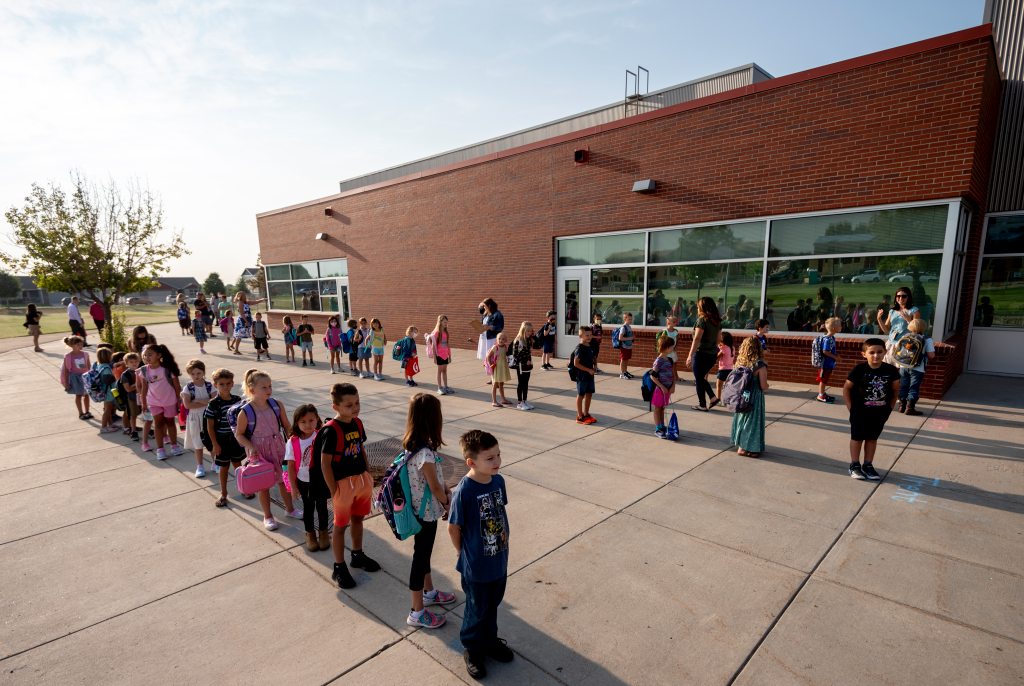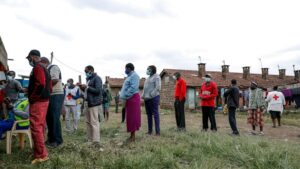The school year is beginning across Colorado while the Delta variant of COVID is racing through children at higher rates than at any previous time. Although we are all bone-tired of the pandemic, we need to take stronger measures to protect our unvaccinated kids. We all want children to attend school in person and avoid bouncing to online modalities. To make that happen, all Colorado schools need to follow the near-unanimous advice from state, regional, and national public health agencies and medical groups to mandate indoor mask-wearing, install more portable HEPA filters, and institute safer lunchtime procedures to slow COVID transmission.
The SARS-CoV-2 virus continues to be an ever-stronger adversary and is now far more contagious, even among young children. The delta variant is now the dominant COVID-19 strain in Colorado. That is, in part, because people infected with Delta can harbor a thousand times more virus than the original strain, and some vaccinated individuals can spread it.
Children under 18 are being hospitalized with serious cases both in higher numbers and at a faster rate of increase than at any point thus far. While most children recover from COVID, some die, and an increasingly high number are showing “long-COVID” symptoms, including serious physical and neurological effects that could last a lifetime. Children infected at school can also spread the disease back to their homes, communities, the elderly, and the immunocompromised.
The CDC recently updated its recommendation, stating that even vaccinated people in most areas of the country, including the majority of counties in Colorado, should universally mask indoors. Their internal communications are even stronger — “universal masking is essential” across the U.S.
The CDC joined the American Academy of Pediatrics, the U.S. Department of Education, and countless other medical groups who urge for mask mandates in K-12 schools, regardless of vaccination status or community infection rate.
Many counties in Colorado have infection rates higher than three times the level considered high-risk by CDPHE, surpassing the point where they strongly suggest masks in schools. Though many districts in Colorado have already mandated masks, and the Tri-County Health Department met on Monday of this week to consider region-wide mandates, the conversation is critical for the whole state.
While mask-wearing indoors is the cheapest and among the best strategies against airborne virus spread, it is not the only strategy that school districts need to improve. Layered defenses reduce risk of inhaling viral aerosols as no individual layer is a silver bullet to prevent infection. The combination of approaches lowers overall risk.
Widespread vaccination, yet unavailable to children under 12, is the most critical piece to slowing the virus. Tight-fitting masks with adequate filters apply another indispensable layer of community defense. They help prevent viruses from being exhaled into the shared airspace and also significantly protect the wearer from infection.
High rates of ventilation and portable HEPA filters clean viruses from the air, reducing build-up. Improved school building air quality using these measures has shown additional long-term benefits — such as lower absenteeism, lower asthma and allergy rates, and higher test scores.
Many districts around the country, including large districts like New York City, Chicago, and Philadelphia, have chosen to lower COVID risk by purchasing portable HEPA filters for every classroom in the district. At a cost of around $10 per student, that’s an excellent return on substantial health improvement for students and staff.
Additionally, relatively inexpensive (~$150) carbon dioxide monitors can help assess and verify ventilation rates. But free approaches add significant health benefits to risky, indoor spaces where masks come off, such as lunch and music rooms. Those spaces need special care. Moving lunch outdoors is the most important strategy to reduce exposure. Otherwise, it is imperative to increase the distance between students at meals, reduce time indoors while eating, add multiple extra HEPA units in lunch and music rooms, and sufficiently flush out air between groups.
Critics invoke calls to freedom or point to scientifically disproven theories that masks are dangerous or COVID only harms adults. Some parents raise legitimate educational and psychological challenges that have arisen for their children.
But the medical health threat is simply too grave for the whole community of students. School leaders that rely on low COVID transmission rates from last year ignore that the war has changed due to the delta variant. Officials that go against public health advice disrespect their students and their families and model that administrative ideologies trump professional scientific and medical expertise.
Public officials listen to their constituents. You, as students, parents, and staff must contact school district leaders to press that they listen first to experts. Be respectful, but make sure they mandate masks indoors, deploy portable HEPA filters, and publicly release details on their fall COVID plan, including specific ventilation and filtration upgrades.
Until children in Colorado have widespread access to the COVID vaccine, the risk to our children and community is simply too high not to follow basic public health advice.
Alex Huffman is a father of school-age children and an associate professor at the University of Denver studying bioaerosol science, indoor air, and COVID transmission.
To send a letter to the editor about this article, submit online or check out our guidelines for how to submit by email or mail.



















